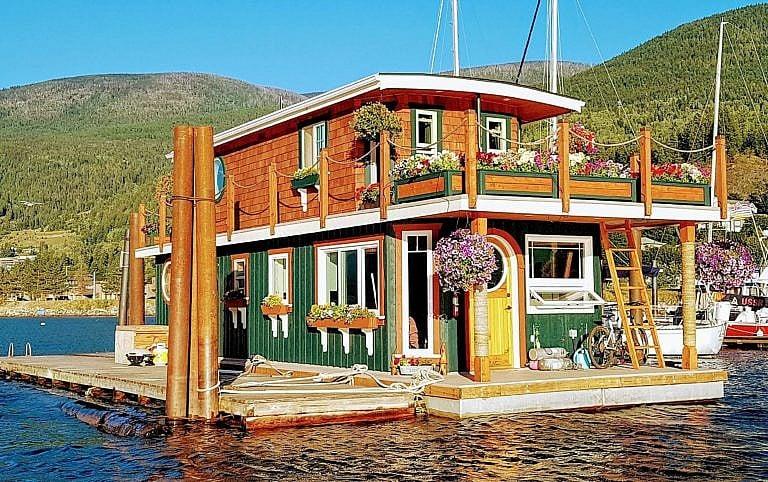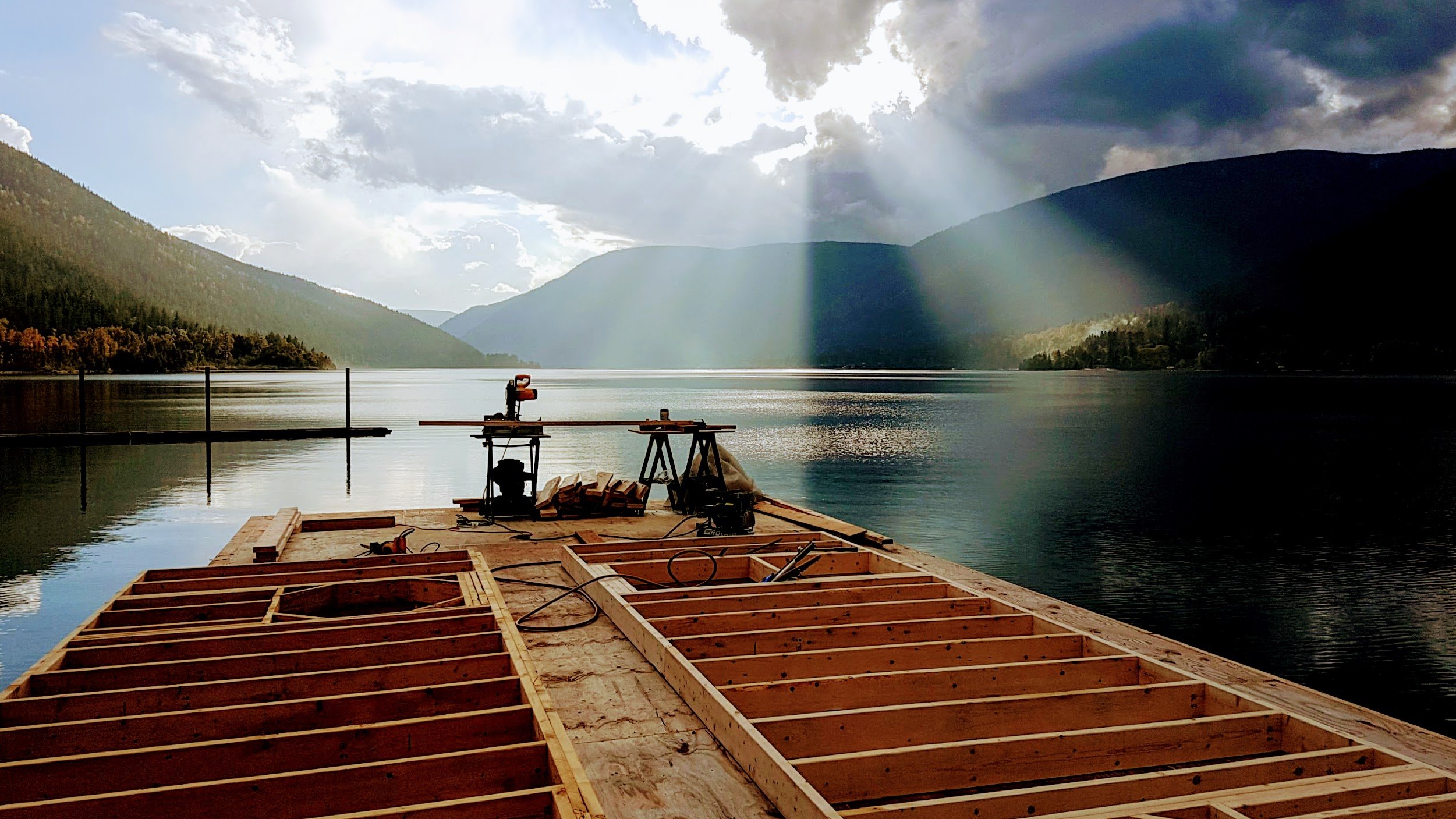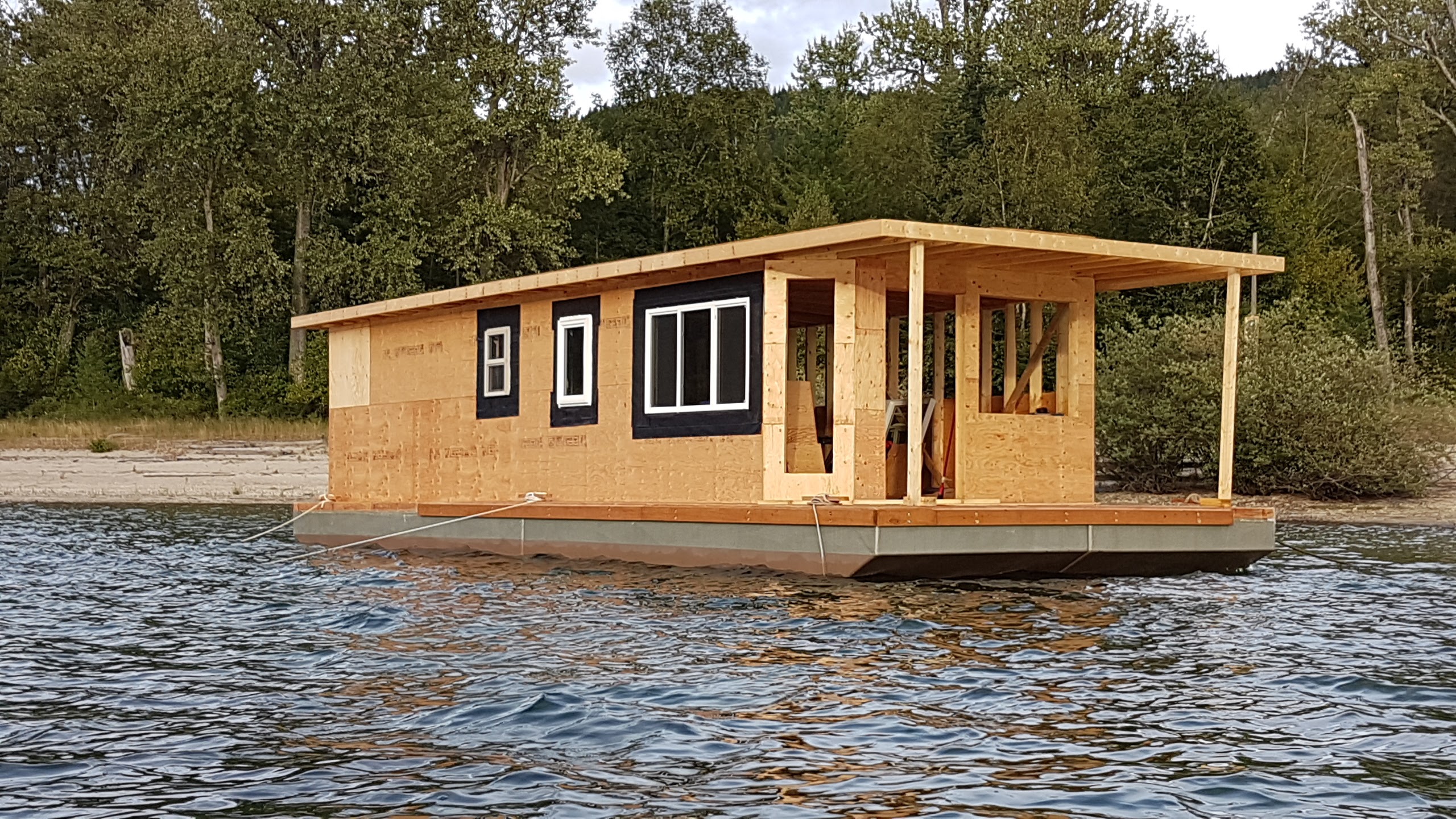Habitat: A B.C. construction worker sold his country house to build this floating home
“I had a choice: remain chained to a mortgage, or take on this new challenge”

Jay Blackmore went from a 3,000 acre property to a life on the water (Photos courtesy Blackmore)
Share

Jay Blackmore felt like he had too much house and yard. In 2015, he lived in a four-bedroom country house on a five-acre lot in Nelson, B.C. After spending most of his spare time landscaping, plowing the driveway and mowing the lawn, the $1,700 monthly mortgage and constant maintenance costs were weighing on him. One day, while sailing in Vancouver, he stumbled on a network of floating homes—small houses built on barges—moored on the docks of the Squamish First Nation’s Mosquito Creek Marina. Blackmore, a construction worker, wondered if he could build one of his own. “I had a choice: remain chained to a mortgage, or take on this new challenge.”
READ: Habitat: A former New York Times journalist built this beachside fortress in P.E.I.
After a year of strategizing, he started construction on his own floating home on Kootenay Lake, just a 10-minute drive from his house. He did much of the work himself, first crafting a 16-by-40-foot barge out of fibreglass and locally harvested cedar. On top of that he built a two-storey, three-bedroom, 700-square-foot wood-panelled home with an open-concept kitchen and a wraparound deck covered in flower beds. “I designed it to evoke the big sternwheelers from back in the 1890s,” he says. “You could almost imagine a paddlewheel in the back of it.”


Blackmore winterproofed the house with adhesive spray foam, which insulates the house and prevents it from breaking down under the force of waves. He also installed solar panels on the roof and brought in a pellet stove to heat the interior. It cost him about $150,000 to build the house and barge, and it costs roughly $1,200 per month to maintain it. To occupy his 640 square feet of lake-bottom land, he also pays docking fees, insurance, bi-monthly cleaning fees and property tax of a few thousand dollars per year.


Blackmore permanently moved into his floating home in 2020. Living on the water comes with a unique set of trials. Storms rock the house for hours at a time, and he’s constantly carrying groceries, wood pellets and garbage to and from Nelson’s community centre, which is a 10-minute walk away. The greatest challenge, however, is one that Blackmore has set for himself: ensuring his lifestyle is eco-friendly. “I don’t want to pollute this lake. I’ve taken great measures to ensure that no waste gets dumped,” he says.

To that end, he created a sophisticated, two-way water filtration system that pulls water from the lake and funnels it into a five-stage reverse-osmosis process. The water goes back into the lake cleaner than when it left: Blackmore has a 40-gallon sump under the floor, which collects the house’s grey water and sends it through a series of filters, including an ultraviolet filter that breaks down any remaining pathogens. He even makes his own fertilizer with grease and food waste, which drain through the sink, land in a container, mix with maple wood chips and charcoal to expedite breakdown and then travel upward through a piping system to fill the flower beds. “It costs me about $40 per month,” he says. “It’s worth it.”

This summer, he plans to sail the coast of B.C. and leave his abode for five months. His children, who are 21 and 19, usually house-sit for him, but he reached out on Instagram to see if anybody would want to rent his home for the duration. After receiving more than 50 inquiries, he was gratified by the interest but remains most proud of what his home means for his kids. “My goal was to show them that you can have a great quality of life by managing your footprint and keeping it affordable, even if it’s not in a traditional way,” Blackmore says. “I think I’ve accomplished that.”

This article contains affiliate links, so we may earn a small commission when you make a purchase through links on our site at no additional cost to you.